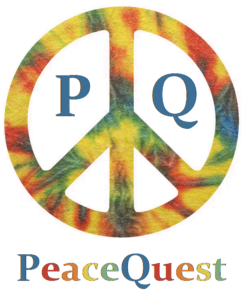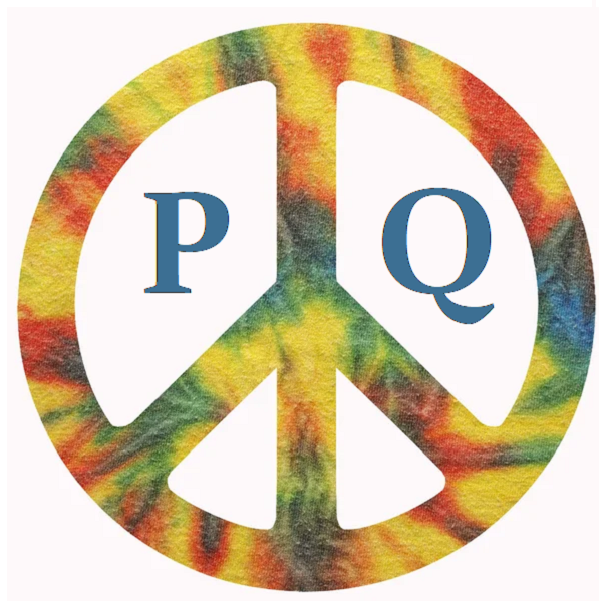Citizen Peace Talks Assembly

End the War in Ukraine NOW
A proposal for a panel of distinguished non-government persons to draft a consensus Peace Agreement whose implementation would enduringly settle the conflict in Ukraine.
SUMMARY
Our hypothesis is that state-to-state negotiations can be constructively influenced and nudged out of their rigid “stuck” positions by a clear, specific, and credible draft Peace Agreement that is developed by distinguished civil-society leaders and widely supported by an active international peace movement.
This concept note proposes the organisation of a panel of esteemed non-government figures from the parties in conflict – including distinguished Ukrainians, Russians (if necessary: expat Russians), Americans, Europeans and others – who will be tasked with arriving at a consensus draft Peace Agreement. This Agreement should be written so that its implementation would enduringly resolve the conflict in Ukraine by respecting the core interests of the parties in conflict, as well as protect vulnerable populations in Ukraine and far beyond Ukraine who are being harmed or put at risk by the on-going conflict.
The peace agreement proposal could be named the “Mariupol Peace Agreement” to underline what the alternative to a peace agreement looks like: it looks like the ruins of Mariupol, its buildings converted into rubble and bodies lying uncollected in the streets. Mariupol could happen to all of us if this war evolves into a wider catastrophe.
Our motivation in developing such a civil-society-generated proposed Peace Agreement is that the formal diplomatic negotiations between states over Ukraine are stuck in rigid and mutually exclusive zero-sum positions that each side sees as non-negotiable. This impasse is causing the conflict to spiral ever more dangerously into a wider Russia-vs-NATO confrontation. Moreover, it is causing enormous levels of collateral damage to civilian populations far from the conflict region – especially to food-insecure populations in the global South.
The practical value of the draft Mariupol Peace Agreement will be to serve as the focus of a peace movement encompassing citizens in Ukraine, Russia, Europe, and North America – the regions which are the principal parties to the conflict.
ORGANIZATIONAL STEPS – CALLS TO ACTION
First step: We ask that respected civil-society peace and security institutes in Europe tap their networks to assemble a core writing team of four individuals and an editorial panel of 12 individuals, all of them highly respected persons, who will write a draft Peace Agreement on an iterative consensus-building basis. This must be done quickly, in days rather than months, in view of the on-going damage to Ukraine, the rising risk of a wider Russia-vs-NATO conflict, and the increasing harm to food-insecure populations in the global South caused by the impact of the conflict on grain and fertilizer supplies and prices.
Action needed: The leader of one peace and security institute in Europe must step forward to spearhead this initiative. Every initiative needs someone to take charge.
Second step: With the completed Peace Agreement text in hand, the peace and security institutes involved in developing the Mariupol Peace Agreement should next recruit high-profile respected organisations and voices to endorse the Peace Agreement, especially people who are prepared to actively promote it.
Action needed: The leaders and staff of the peace and security institutes who took the lead in Step One should set up a website featuring the Mariupol Peace Agreement and circulate it to targets for endorsement. For example, endorsement and support could be requested of The Elders and the Parliamentary Network and from a variety of celebrities from *all* of the nations in conflict, including retired world leaders, Nobel Prize winners and the Nobel Prize organisation, etc. These endorsers and supporters can be asked to appear at high-profile public events to speak in favour of the Agreement, including government events as well as civil society organised events, e.g. arts and culture events, peace concerts, etc..
To engage a wider range of citizens, peace organisations could set up a European Union petition drive asking the EU Parliament to endorse the Mariupol Peace Agreement, and could invite city councils to formally vote to endorse the Mariupol Peace Agreement. Insofar as any similar mechanisms exist in Russia, the same should be attempted there.
Third step: Peace initiative leaders should call for large-scale fully non-violent peace vigils with wide public participation on a twice-weekly basis, e.g. Wednesdays from 4 PM until half an hour before sundown in front of the city hall, and Sundays from 10 AM until 2 PM at the main churches and cathedrals, in each village, town, and city in Russia and in Europe. The citizens will be asked to endorse the Mariupol Peace Agreement and to call on political leaders to do likewise, all of them: from city council members up to national parliament members and national leaders.
Citizens at these vigils will be invited to “declare peace” on their peers, the citizens in all the other countries involved in these events. A symbol can be devised to enable people to show support for the Mariupol Peace Agreement, e.g. an arm-band could include stripes encompassing all the colours of the national flags of Ukraine, Russia, and the European Union: yellow, light blue, white, red, and dark blue.
Action needed: Civil society peace movement organizers must step forward to initiate and organize these peace vigils, and especially in Russia, it will be necessary to move carefully to minimize the harm caused by police over-reaction. We propose that peace vigils inside Russia should perhaps be composed entirely of women and girls, with no males allowed, to shame the police into refraining from brutal crackdowns.
Fourth step: A set of tools and initiatives to foster direct communication between citizens in Russia, Ukraine, and Europe could be developed in which citizens discuss how to move peace forward together.
Action needed: IT / communications specialists who can develop censorship-resistant social media channels.
CONTEXT
The motivation, legitimation, and purpose of generating such a draft Peace Agreement are as follows.
- Negotiations between the conflicting parties at the formal political level are stuck.
The political leaders in Russia and Ukraine, and arguably also political leaders from other countries who are influential in this conflict, in particular USA, have become locked into rigid positions from which they feel they cannot back down. These rigid positions – in particular, the two sides’ incompatible demands over the future status of Crimea and Donbass – concern core elements of the conflict, and the positions are mutually exclusive.
This means that in the absence of any narrative-changing intervention from influencers external to the formal government-to-government diplomatic discourse, the war will continue until one side is physically forced to capitulate.
- The wider world has a huge stake in how this conflict is (mis-) managed.
The longer the conflict in Ukraine continues, the more enormous the resulting destruction in Ukraine, the larger the collateral damage further afield caused by disruptions in grain and other commodity supply chains, and the higher the risk of a catastrophic European or Russia-versus-NATO war.
Enormous collateral damage is likely to result to populations far from the conflict, as the conflict has already widened into an economic war. Disruptions to global grain supplies, fertilizer supplies, and other commodities are putting hundreds of millions of people who have never been anywhere near Ukraine at risk of famine.
The dispute over the status of Donbass and Crimea and the future alliance position of Ukraine has already spilled over into a wider conflict involving armaments flows and an unprecedented economic embargo on Russia. Serious reasons for concern exist that the spiral of conflict could further widen. Billions of people are at rising risk of suffering the consequences of a nuclear war.
It would therefore be false to assert that only Russia and Ukraine have interests at stake in this conflict, and that only their governments therefore have standing to negotiate an end to this conflict. The future of Crimea and Donbass and the status of Ukraine in the European and global security order are now matters of global concern.
A Citizens Assembly is legitimated by these impacts, given that the formal diplomatic process between the parties in conflict is stuck. Other powerful governments have been taking sides in the conflict, rather than seeking to end it on a non-partisan basis. Civil society, driven by the wider public interest, must step in to take a fresh approach to the negotiations, unencumbered by rigid positional bargaining of state foreign policy establishments or by the egoic preoccupations of individual political leaders.
- Many important principles have been violated by the states that are party to this conflict.
The principles at stake in the growing conflict arising from the issue of whether Crimea and Donbass are under the sovereignty of Moscow or Kyiv are far from trivial:
- One is the principle that borders in Europe should not be changed by force. As important as this principle is, it is not the only principle of relevance in this case.
- Another is the broader principle that countries should not wage aggressive war against neighbouring countries.
- Another is that it is immoral for great powers to wage proxy wars against each other by using less powerful nations as battlespaces.
- Another is the principle that populations within a historically contested border region should have a voice in which national entity their region will affiliate with.
- A further principle at stake is that in developing international security arrangements in contested regions, governments should take due account of the interests and narratives of all the governments and populations concerned. Attempts to unilaterally impose one side’s preferred arrangement with little or no regard to the interests of counterparties have a way of provoking conflict.
- Yet another principle is that the international system should seek to contain the scope of impact of conflicts, when they arise, and especially should take steps to avoid causing enormous collateral damage to third parties.
All of these principles have been breached in the present case.
To discuss these ideas or get involved, please get in touch:
